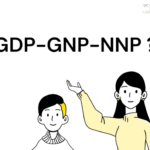The UPSC EPFO Exam pattern involves two stages. The first stage involves the carrying Objective type questions, and in the second stage, there will be an interview. To shortlist the candidate for the interview, a pen and paper-based written Test will be conducted by the commission.
| Exam | Marks | Weightage |
|---|---|---|
| Recruitment Test | 100 | 75% |
| Interview | 100 | 25% |

| Category | Qualifying marks |
|---|---|
| General | 50 |
| OBC | 45 |
| SC/ST/PH | 40 |
General English:
Phrase replacement, Reading comprehension, Sentence completion/ para completion, Close Test, Error Spotting, Fill in the Blanks, Para Jumbles, Phrases/ Idioms, Spellings, Synonyms/Antonyms.
- act up (no object): misbehave(दुर्व्यवहार)-(र्व्क्तियों के क्तिए) ; not work properly(सही से
काम न करना (मशीन के क्तिए).
Example 1→ “The babysitter had a difficult time. The children acted up all evening.”
Example 2→ “I guess I’d better take my car to the garage. It’s been acting up lately.”
- act like (inseparable): behave in a way that’s like _. (एक तरह से र्व्वहार
करते हैं जो __ के समान है.
Example 1→ “What’s wrong with Bob? He’s acting like an idiot.”
Note: This phrasal verb is very informal.
- add up (1. No object): logically fit together(तार्ककक रूप से एक साथ फिट हैं).
Example 1→ “His theory is hard to believe, but his research adds up.”
Note: This phrasal verb is often negative.
Example 2→ “His theory seems, at first, to be plausible, but the facts in his research
don’t add up.”
- add up (2. Separable): find the total.(कु ि ज्ञात करना)
Example 1→ “What’s the total of those bills? Could you add them up and see?”
- add up to (inseparable): to total.(कु ि क्तमिाकर)
Example 1→ “The bills add up to Rs. 734.96. That’s more than I expected!”
- ask out (separable): ask for a date.(तरीक के क्तिए बोिना)
Example 1→ “Nina has a new boy friend. James asked her out last night.”
- back down (no object): not follow a threat.(खतरे का पािन न करें)
Example 1→ “Timmy was going to call the police when I told him I’d wrecked his car,
but he backed down when I said I’d pay for the damages.”
- back up (1. no object): move backward; move in reverse.पीछे की ओर जाना, ररवसय में
जाना.
Example 1→ “You missed the lines in the parking space. You’ll have to back up and
try again.”
Example 2→ “The people waiting in line are too close to the door. We won’t be able
to open it unless they back up.”
- back up (2. separable): drive a vehicle backwards एक वाहन पीछे की ओर िे जाना (ररवसय
में).
Example 1→ “You’re too close! Back your car up so I can open the garage door.”
- back up (3. separable): एक कहानी की पुक्ति करना, तथ्य, या जानकारी.
Example 1→ “If you don’t believe me, talk to Dave. He’ll back me up.”
- back up (4. separable): make a “protection” copy to use if there are problems
with the original (यफद मूि के साथ समस्याएं हैं तो इसका उपयोग करने के क्तिए एक “सुरक्षा” प्रक्तत बनाना)
Example 1→ “When my computer crashed, I lost many of my files. It’s a good thing
I backed them up.”
- beg off (no object): decline an invitation(न्योता अस्वीकार करना); कु छ कायय को करने से पीछे
हटना.
Example 1→ “At first Lily said she would be at the party. Later she begged off.”
- blow up (1. separable): inflate.(िु िाना)
Example 1→ “We need lots of balloons for the party. Will you blow them up?”
blow up (2. separable): explode(क्तवस्िोट); destroy by exploding(क्तवस्िोट से नि करना).
Example 1→ “That old building really came down quickly!”
Example 2→ “That’s because the construction company used dynamite to blow it up.”
- blow up (3. no object): अचानक बहुत गुस्सा होना.
Example 1→ “When I told Jerry that I’d had an accident with his car, he blew up.”
- bone up on (inseparable): थोडे समय के क्तिए अच्छी तरह से समीक्षा / अध्ययन करना.
Example 1→ “If you’re going to travel to Peru, you’d better bone up on your
Spanish.”
- break down (1. separable): घटक को कु छ भागों में अिग-अिग करना.
Example 1→ “We spent a lot of money at the supermarket. When we broke the total
cost down, we spent more on cleaning supplies than food.”
break down (2. no object): काम न करना. “Sharon will be late for work today. Her
car broke down on the freeway.”
- break in (1. Often no object; with an object, break into – inseparable): बि का
प्रयोग करके प्रवेश करना (और तािा तोडना, क्तखडकी तोडना अफद,)
Example 1→ “Jane’s apartment was burglarized last night. Someone broke in while
Jane was at the movies.”
Example 2→ “Somebody broke into Jane’s apartment while she was at the movies.
- break in (2. separable): जब कोई नई वस्तु आरामदायक है.
Example 1→ “These are nice shoes, but they’re too stiff. I hope it doesn’t take too
long to break them in.”
19. break in (3. separable): प्रक्तशक्षण; फकसी को कोई नया रूटीन क्तसखाना.
Example 1→ “I hope I can learn my new job quickly. The manager hasn’t scheduled
much time for breaking me in.”
- break up (1. no object): िै िाना, क्तततर क्तबतर.
Example 1→ “What time did the party break up last night?”
- break up (2. Usually no object; with an object, break up
with [inseparable]):र्व्क्तिगत संबंध समाप्त करना.
Example 1→ “Tim and Julie aren’t going steady any more. They got really angry with
each other and broke up.”
Example 2→ “Have you heard the news? Julie broke up with Tim!”
Example 3→ “I’m sorry to hear that their marriage broke up. I’m sure the divorce will
be difficult for the children.”
- bring/take back (separable): वाक्तपस िौटाना.
Example 1→ “Yes, you can borrow my pen, don’t forget to bring it back to me when
you’re finished.”
Example 2→ “This book is due tomorrow. I guess I should take it back to the library.”
- bring off (separable): कु छ मुक्तककि कायय पूरा करना; ऐसी चीज पूरा करना क्तजसे िोग नामुमफकन
समझते हैं.
Example 1→ “No one thought Jack could get an A in that course, but
he brought it off.”
- bring up (1. separable): mention उल्िेख (as a topic of discussion).
Example 1→ “We planned to discuss overtime pay in the meeting. Why didn’t
someone bring that topic up?”
- bring up (2. separable): उठाना, ररयर.
“Lily’s parents died when she was a baby. Her grandparents brought her up.”
- brush up on (inseparable): थोडे समय के क्तिए अच्छी तरह से समीक्षा / अध्ययन करें.
Example 1→ “If you’re going to travel to Peru, you’d better brush up on your
Spanish.”
- burn down (no object): आग से नि / खपत.
Note: सीधी चीजों के क्तिए – पेड, इमारतों, आफद – के वि.
Example 1→ “Lighting struck Mr. Kennedy’s barn last night. It burned down before
the fire fighters arrived.”
- burn up (1. no object): आग से नि / खपत.
Note: के वि िोगों के क्तिए .
Example 1→ “All of Mr. Kennedy’s hay burned up when his barn burned down.”
- burn up (2. separable): फकसी को गुस्सा फदिाना.
Example 1→ “Did you hear how rudely Fred talked to me? That really burned me up!”
- butt in (no object): बेबदि रूप से बाक्तधत (एक वातायिाप, एक फिया).
Example 1→ “Hey, you! Don’t butt in! Wait for your turn!”
- butter up (separable): कु छ िाभ पाने की आशा के साथ फकसी को ज़्यादा प्रशंसा करना.
Example 1→ “I guess Marty really wants to be promoted. He’s been buttering his
boss up all week.”
- Call off (separable): फकसी क्तनधायररत चीज को रद्द करना.
Example 1→ “We don’t have school today. The mayor called classes off because of
the snow.”
- call on (inseparable): कक्षा में फकसी से उत्तर पूछना.
Example 1→ “I don’t know why the teacher never calls on you. You always know the
answer.”
- Calm down (with or without an object: with an object, separable): शांत / कम उत्तेक्तजत
या कम परेशान होना; फकसी को शांत / कम उत्तेक्तजत या परेशान करने में सहायता करना.
Example 1→ “Why are you so upset? Suzie didn’t intend to spill orange juice on
you. Calm down!”
Example 2→ “I know Ralph is upset, but can you calm him down? He’s making so much
noise that he’s irritating everyone in the office.”
- care for (1. inseparable): पसंद; चाहते हैं.
Note: This phrasal verb is usually negative, though it may be used affirmatively in
questions.
Example 1→ “Would you care for something to drink? We have coffee, tea, or orange
juice.”
Example 2→ “Could I have water, please? I don’t care for coffee, tea, or juice.”
- care for (2. inseparable): का ख्याि रखना; आपूर्तत की देखभाि; उपक्तस्थत / देक्तखए.
Example 1→ “Amy’s father got out of the hospital last week. The family is caring
for him at home.”
- catch on (no object): फकसी चीज के ज्ञान में वृक्ति या समझदारी में वृक्ति.
Example 1→ “Bill had never used a computer until he took this class, but he caught
on very quickly and is now one of the best students.”
- catch up (with) (often without an object; with an object, inseparable): पीछे रहना
बंद करना.
Example 1→ “Terry stopped to rest for a few minutes. He’ll catch up / catch up
with us later.”
- check in(to) (inseparable): एक होटि, कांफ्रें स आफद में पंजीकरण कराना; फकसी को आक्तधकाररक
तौर पर बताना फक आप आ चुके हैं.
Example 1→ “My plane will arrive around 5:00 PM. I should be able to check into the
hotel by 6:00 or 6:30.”
Example 1→ “When you arrive at the convention, be sure to check in at the
registration desk.”
- check off (separable): यह इंक्तगत करने के क्तिए एक क्तनशान बनाएं फक सूची में कु छ पूरा हो गया है.
Example 1→ “Here are the things you need to do. Please check each one off when
you’ve finished it.”
- check out (of) (1. inseparable): छोडने के क्तिए प्रफियाओं का पािन करना(होटि आफद से.)
Example 1→ “Don’t forget to take your room key to the front desk when you check
out (when you check out of the hotel).”
- check out (2. separable): कु छ उधार िेने के क्तिए प्रफियाओं का पािन करना (usually for a
limited period of time).
Example 1→ “I’m sorry, but you can’t take that encyclopedia home. The library won’t
allow you to check reference books out.”
- cheer up (separable): फकसी को कम चचक्ततत /उदास महसूस करने में सहायता करें.
Example 1→ “Suzie’s brother was depressed about not getting a promotion, so she
sent him a funny card to cheer him up.”
- chew out (separable): फकसी को बुरी तरह से डाटना; धमकाना.
Example 1→ “Tom’s father was really angry when Tom didn’t come home until 3:00
AM. He chewed Tom out and then said Tom had to stay at home for two weeks.”
- chicken out (no object): कु छ करने के क्तिए साहस या आत्मक्तवश्वास खो देना – अक्सर अंक्ततम क्षण
में.
Example 1→ “Sam said he was going to ask Leela for a date, but he chickened out.”
- chip in (inseparable): फकसी समूह द्वारा की गई कु छ चीजों में योगदान / दान (अक्सर पैसा).
Example 1→ “We’re going to buy a birthday cake for our boss and I’m collecting
donations. Do you want to chip in?”
- clam up (inseparable): अचानक चुप हो जाना / फकसी के बारे में बात करने से इंकार कर फदया.
Example 1→ “Lila wouldn’t talk about the accident. When I asked her what happened,
she clammed up.”
- come across (inseparable): अप्रत्याक्तशत रूप प्राप्त होना.
Example 1→ “I’ve lost my extra car keys. If you come across them while your’re
cleaning the room, please put them in a safe place.”
- come down with _ (inseparable):_ के साथ बीमार होना.
Example 1→ “George won’t be at the office today. He came down with the flu over
the weekend.”
- come to (1. inseparable): कु ि.
Example 1→ “Your charges come to Rs. 124.38. Will you pay by cheque, in cash, or
with a credit card?”
Read Also:.
UPSC EPFO Previous Year Question Papers
UPSC EPFO Syllabus & Exam Pattern 2021
Admit Card AI banking Bank po BIHAR bpsc Current Affairs Editorial Analysis english GK-GS ibps Investment and Trading Jobs Prelims Previous question papers previous years question papers Recruitment Results RRB NTPC sbi ssc Study Notes syllabus Test The Hindu uppsc upsc UPSC-EPFO Vision Ias Vocabulary













